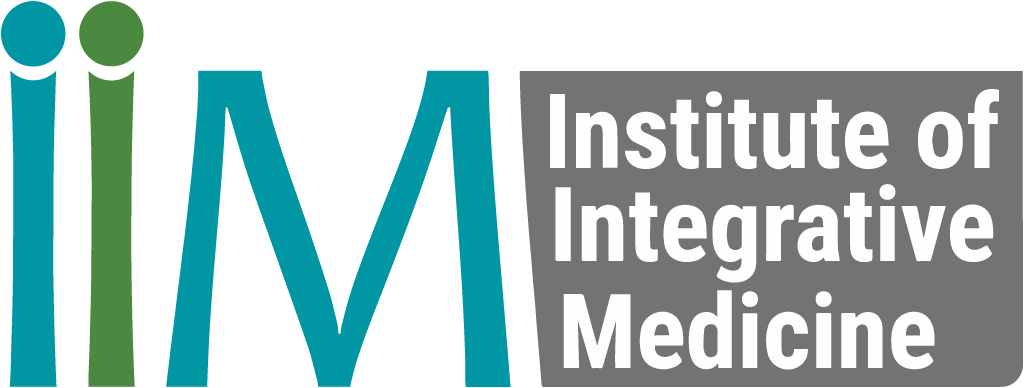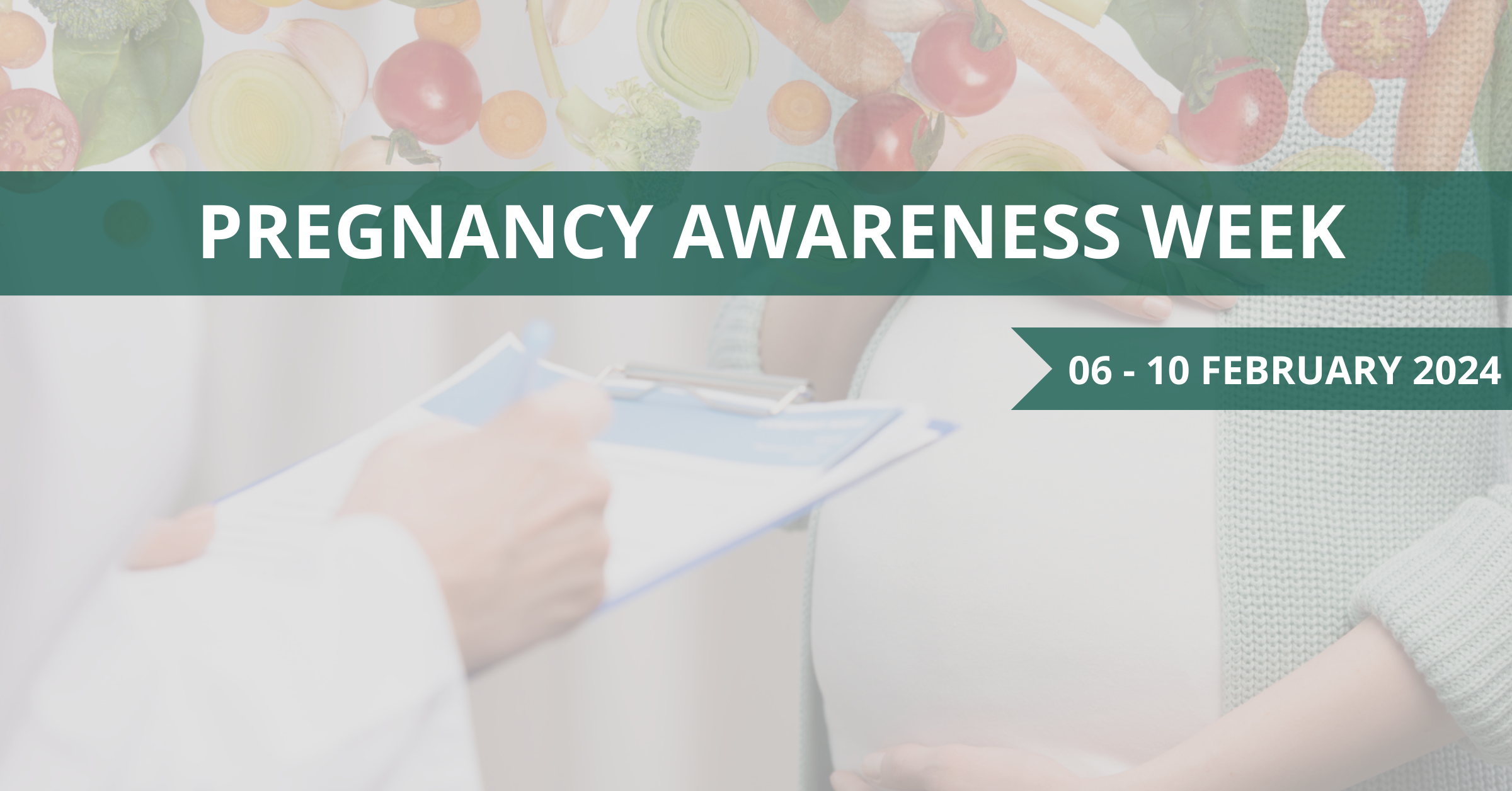Integrative Nutrition for Complete Prenatal Care
Developing a mindful and positive relationship with food is crucial during pregnancy. Prioritising diverse, nutrient-rich choices ensures optimal maternal health and supports optimal foetal development. Remember, individual needs vary, and seeking guidance from qualified healthcare professionals is essential. A collaborative approach fosters informed decision-making, builds autonomy, and ultimately contributes to a healthy pregnancy journey.
Pregnancy represents a remarkable physiological journey. The fluctuations and adaptations occurring within the body to nurture a developing foetus are truly awe-inspiring. While emotions can range from immense joy to moments of anxiety, understanding these changes can empower mothers to make informed decisions throughout their prenatal care journey. But amidst the emotional rollercoaster, one crucial aspect often takes centre stage – nutrition.
That’s where integrative medicine comes in. This approach not only blends conventional guidance with holistic therapies, but also highlights the key role of proper nutrition from the very first cell division to the final kick in utero. After all, nutrients act as building blocks, shaping growth and development. It’s not just about counting calories, it’s about creating a vibrant outlook on food, mindfulness and self-care, to benefit both mother and baby.
Integrative Nutrition and Pregnancy
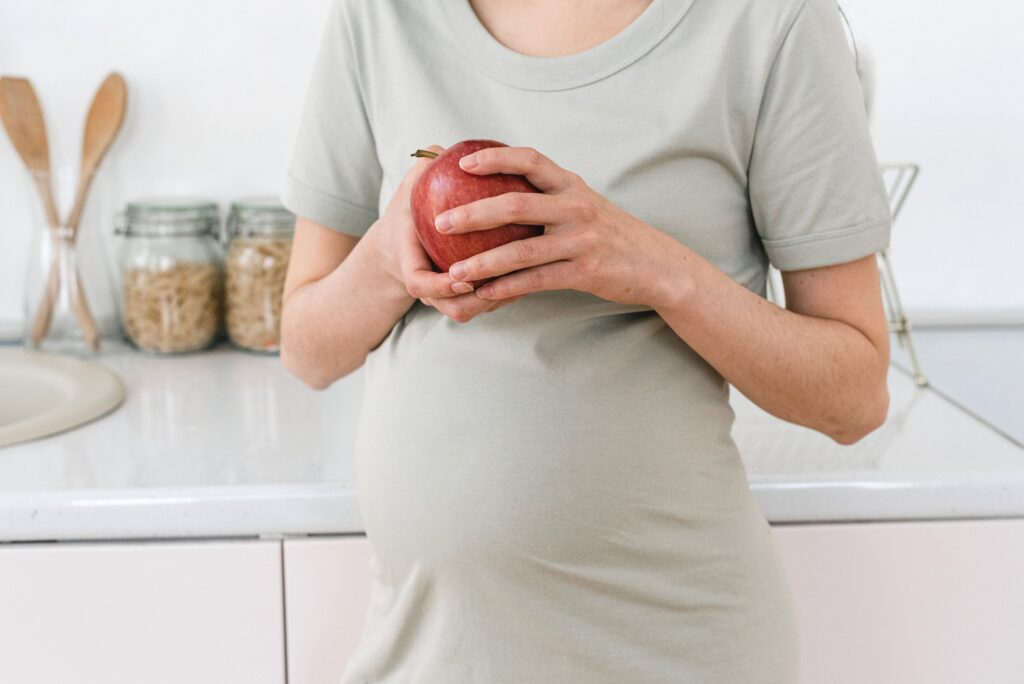
The journey of pregnancy is a transformative one. Maintaining a proper diet when expecting lays the groundwork for the mother’s health and the child’s future development. Integrative nutrition reaches beyond tracking calorie intake; it delves into the fascinating world of how the body absorbs and utilises dietary nutrients. This can influence everything from hormonal balance and physical well-being to weight management and foetal development. By embracing an integrative approach to nutrition, we help create a fertile ground for a healthy pregnancy.
Nutrition for Optimal Pregnancy: Absorption and Bioavailability
Pregnant women require an optimal intake of various micronutrients and macronutrients for foetal development and maternal health. Integrative prenatal nutrition calls for unprocessed, nutrient-dense whole foods to ensure effective absorption and placental transfer of essential vitamins and minerals. This approach identifies the fragile nature of nutrient stores during pregnancy and promotes dietary diversity to avoid deficiencies caused by limited food choices or low-quality processed food intake.
While preconception and prenatal dietary guidance often focuses on balanced macronutrient distribution, personalised considerations are crucial for optimal foetal development. Several factors influence nutrient absorption and bioavailability, including:
- Genetic polymorphisms: Variations in genes related to nutrient transport and metabolism alter individual dietary responses.
- Gut microbiome composition: The gut microbiota plays a vital role in nutrient breakdown and absorption. Disruptions in its balance can hinder nutrient uptake.
- Pre-existing health conditions: Certain medical conditions, such as malabsorption syndromes or inflammatory bowel disease, may impair nutritional absorption.
- Pre-pregnancy weight: Inadequate pre-pregnancy weight can limit the nutrient stores available for foetal development, while excess weight may influence metabolic efficiency.
- Bioavailability: Influenced by the complex interplay between macro- and micronutrients. Synergistic or antagonistic interactions can occur, altering nutrient availability for physiological processes.
Exploring the Pillars of Integrative Nutrition

Integrative nutrition adopts a holistic approach to prenatal dietary optimisation, involving both macro and micronutrient uptake, in addition to psychosocial and behavioural factors. This comprehensive approach supports the development of personalised nutritional strategies that address the physiological demands of pregnancy while promoting maternal well-being. It recognises the connection between food, mental health, and emotional state. Through this transformational period, the goal is to develop a positive and sustainable relationship with nourishment.
A balanced diet rich in nutrients is essential for optimal foetal growth and maternal health throughout pregnancy. This means getting plenty of vitamins and minerals from various high-nutrient foods, like fruits, vegetables, whole grains, and lean protein. Planning a pregnancy diet for vegetarians requires focusing on plant-based sources of protein, iron, and calcium to ensure both mom and baby thrive.
At pregnancy week 5, all major organs, including the brain, heart, and nervous system, begin to develop. The feeling of nausea or fatigue may be present during this period. Eating smaller, frequent meals and choosing easy to digest foods is advised. In the first trimester, there isn’t much need to eat more than usual. In the second and third trimesters, expecting mothers can aim for around 300 extra calories daily. Having too much to eat may lead to weight gain, which can cause problems during pregnancy and delivery.
The key is to eat a balanced diet with a variety of healthy foods to support the body and baby’s growth. Pregnant women are advised to consider:
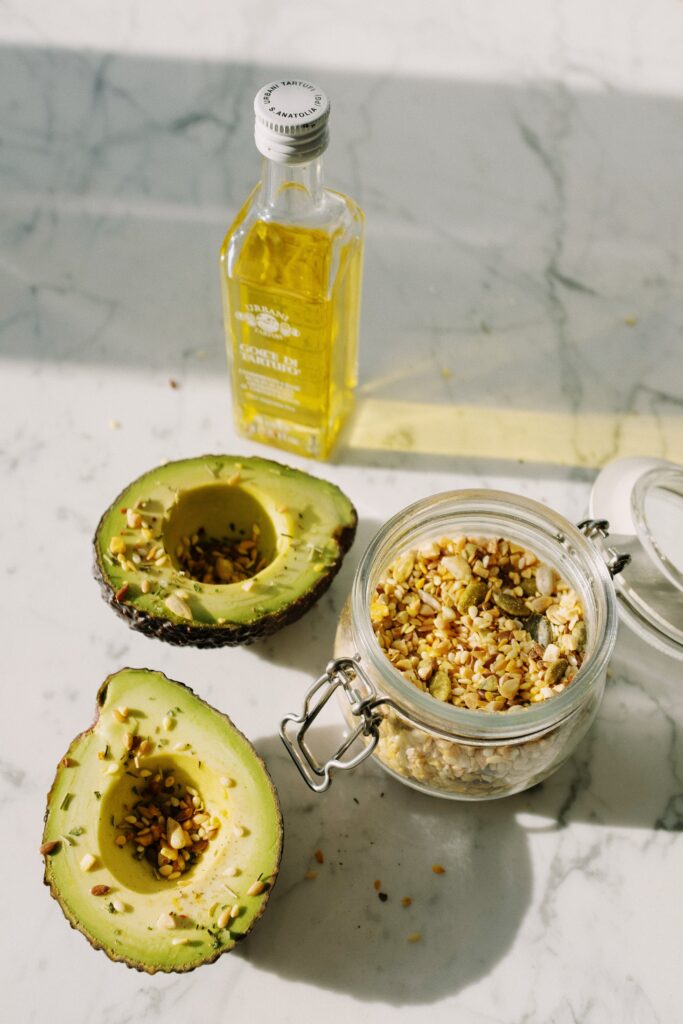
- Protein: 60 grams per day. This helps build tissues and organs. Examples include chicken, lean meat and eggs.
- Carbohydrates: 45-64% of daily calories. Choosing whole grains like brown rice, oatmeal, and sweet potatoes for sustained energy.
- Healthy fats: 20-35% of your calories. These support brain development and other significant functions. Include sources like avocados, nuts, and olive oil.
Docosahexaenoic acid (DHA), a key omega-3 fatty acid, plays a critical role in foetal neurodevelopment and eye functioning. Studies suggest DHA supplementation during pregnancy improves cognitive function and visual quality in offspring. Additionally, omega-3s may exert beneficial effects on maternal health by potentially reducing the risk of preterm birth and postpartum depression. However, concerns regarding mercury content in certain fish species warrant caution. A medical consultation is recommended before supplementing with purified fish oil products. In this way, a 600 mg daily dose of DHA will be safe and effective. For more integrative interventions specific to physiological systems, take a look at our IHP Program.
Conclusion
Following a well-structured pregnancy diet schedule promotes the best nutritional start, a key aspect of the integrative approach to enhancing the experience of pregnancy while nurturing both mother and baby. While conventional guidelines provide foundational support, integrative approaches enable us to go beyond. It weaves together evidence-based practices with personalised insights. By applying this holistic approach, the mind and body are nourished as well as the physical body.
Developing a mindful and positive relationship with food is crucial during pregnancy. Prioritising diverse, nutrient-rich choices ensures optimal maternal health and supports optimal foetal development. Remember, individual needs vary, and seeking guidance from qualified healthcare professionals, such as registered dietitians is essential. Personalised nutrition plans can be created based on each patient’s history and changing needs as they experience pregnancy. A collaborative approach fosters informed decision-making, builds autonomy, and ultimately contributes to a healthy pregnancy journey.
How do I Become a Functional Medicine Practitioner to learn more about Integrative Nutrition During Pregnancy?
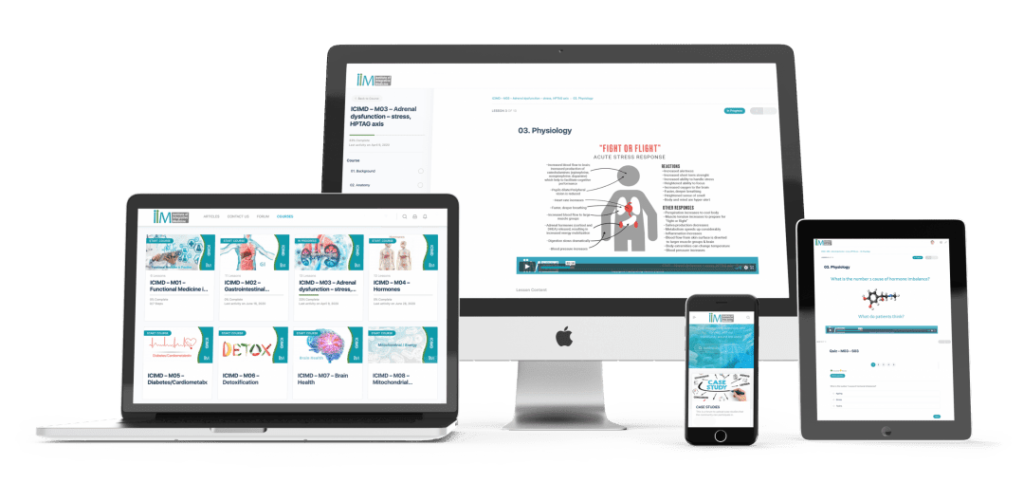
The Institute of Integrative Medicine is a global leader in the field of Integrative Medicine Education. Integrative medicine aims to be at the forefront of modern technology and new discoveries. Integrative medicine focuses on the root cause of disease. Unlock the full potential of your patients, optimising pregnancy health, maximising nutrient absorption, and empowering their journey to true well-being. Go beyond prescriptions and become a partner in their transformation. We offer certified online courses helping you to take charge of your practice and improve the quality of life for your patients. Find out more about the courses we offer today!
